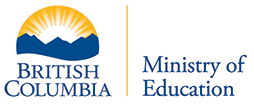
Unit Plan:
Storytelling, Identity, and First Nations’ Culture
Core French / Grade 8-10
Big Ideas
Stories (i.e. First Nations’ oral histories, personal stories) provide unique ways to interpret and share knowledge, thoughts, and feelings.
Concepts:
- Communication
- Storytelling
- Oral history
Essential Questions
Students will keep considering…
- How does story telling shape and reflect culture?
Evaluative Criteria
Formative:
Teacher directs guided discussion of:
- Stories
- Storytelling
- Culture
Summative:
Teacher determines rubric for oral presentation of Performance Task.
Extension:
Writing rubric for possible written submission.
Monitoring Progress
Ensure that students are familiar with how to identify, pronounce, and write: le présent, le passé composé, and le futur proche (provide practice).
Ensure that students have an understanding of what culture can mean and how it would apply to their own lives and communities.
Ask students to provide a (glossary) lexique of vocabulary for their own story to explain to you and/or the class.
Ask students to provide a rationale for the cultural component of their lesson.
Ensure that students are given class time for peer review before summative assessment.
Resources
Les Échos de l’Île de la Tortue:
1) La fille-aigle, Robert Cutting
2) Le mystère de la brume, Robert Cutting
Additional:
1) Dansons, Jessice Athlueetuk
2) YouTube Video: Csetkwe Fortier Okanagan Song (50 video mix)
Reflection
How will teachers and their students reflect on and evaluate the completed project?
Constant feedback from students and dialogue after each activity outlined in the Learning Events will help to direct and adapt what is explored in the next activity. Self, peer and teacher evaluation of the Performance Task and its alignment with the essential questions.
Teacher:
Next time I teach this unit I would…
Allow students to select the short stories that link to Identity.
Student:
My students needed:
Process:
Product:
Content:
Potential Student Misunderstanding:
Downloads
Stage 2 – Evidence
Authentic Performance Tasks
AUTHENTIC PERFORMANCE TASK: Assessing for Understanding
Students will be able to demonstrate their understanding by:
Sharing a cultural lesson through storytelling.
GRASPS
What is a GRASPS task?
Other Evidence
OTHER EVIDENCE: Assessing for Knowledge and Skills
Students will show they have acquired Stage 1 knowledge and skills by:
FORMATIVE ASSESSMENT
Reading: Student demonstrates understanding of class reader (teacher’s class example) by explaining verbally a specific portion of the story to the class and teacher.
Listening (class reader + other students’ stories): Student demonstrates ability to comprehend oral stories in French by responding to stories with inquiry questions or their own translation or interpretation of meaning.
SUMMATIVE ASSESSMENT
Speaking: Student demonstrates ability to use appropriate voice, pronunciation, expression, intonation, vocabulary, and verb tense in oral presentation of their own story of culture.
Writing: Student demonstrates ability to use vocabulary and verb tense in written form in French to express their own story of culture.
PERFORMANCE TASK EXTENSIONS
(possible oral and/or written assessment)
- Students explain whether or not they understood the cultural component (lesson) in other students’ stories.
- Students explain the advice they would give to younger (or peer) L2 students on how to read and derive meaning from a text in French.

The following resources are made available through the British Columbia Ministry of Education. For more information, please visit BC’s New Curriculum.
Big Ideas
The Big Ideas consist of generalizations and principles and the key concepts important in an area of learning. The Big Ideas represent what students will understand at the completion of the curriculum for their grade. They are intended to endure beyond a single grade and contribute to future understanding.
Core Competencies
 Communications Competency
Communications Competency
The set of abilities that students use to impart and exchange information, experiences and ideas, to explore the world around them, and to understand and effectively engage in the use of digital media
 Thinking Competency
Thinking Competency
The knowledge, skills and processes we associate with intellectual development
 Social Competency
Social Competency
The set of abilities that relate to students’ identity in the world, both as individuals and as members of their community and society
Curricular Competencies & Content
Curricular Competencies are the skills, strategies, and processes that students develop over time. They reflect the “Do” in the Know-Do-Understand model of curriculum. The Curricular Competencies are built on the thinking, communicating, and personal and social competencies relevant to disciplines that make up an area of learning.
Additional Resources
First People's Principles of Learning
To read more about First People’s Principles of Learning, please click here.
For classroom resources, please visit the First Nations Education Steering Committee.
